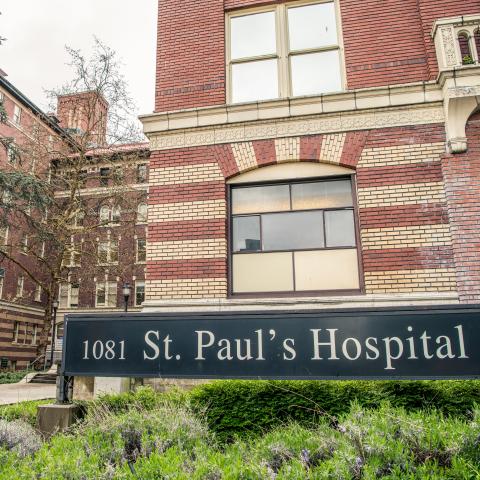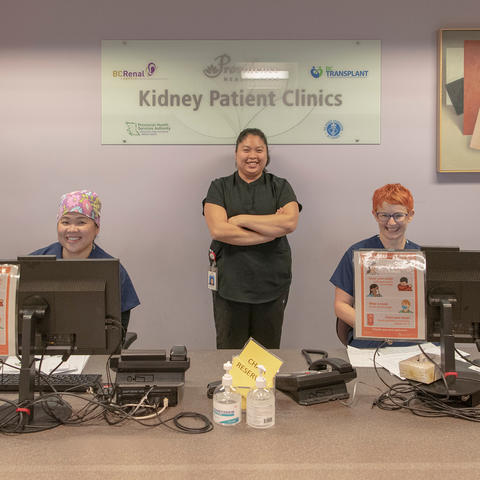High blood pressure
An overview of Providence Health Care’s services and resources for adults living with high blood pressure.
Overview
High blood pressure (HBP), or hypertension, is when blood pushes too hard against artery walls. This constant force can damage arteries and lead to health issues. For example, high blood pressure makes the heart work harder. This can cause serious problems like heart disease, stroke, and kidney issues.
Blood pressure is measured with two numbers: the top one (systolic) is a measurement of when the heart is squeezing or contracting , and the bottom measurement (diastolic) is a measurement of when the heart is relaxing. Blood pressure numbers of less than 120/80 mm Hg (millimeters of mercury) are considered within the normal range.
Managing high blood pressure involves lifestyle changes:
- A healthy diet
- Regular exercise
- Maintaining a healthy weight
- And sometimes medications
Diagnosis & testing
Most people find out they have high blood pressure during a routine visit to the doctor or a primary care provider.
If your primary care provider diagnoses you with high blood pressure, they will recommend lifestyle changes and may prescribe medications.
While your family practitioner can manage your high blood pressure, it may lead to these other problems which could bring you to Providence Health Care.
Treatment & management
High blood pressure can lead to many different conditions that can affect your health and well-being. These include:
Clinics that treat high blood pressure
Treatment for high blood pressure is often medications and lifestyle changes based on a primary care provider's recommendations.
Providence also operates a number of clinics that can help you hold off the complications that come with high blood pressure.
Support services
Providence Health Care offers a variety of services to support those we care for. The following services may be of use or benefit to you and your families.
Education & resources
Patient communities
Clinical trials & research
Advances in high blood pressure (HBP) treatments are all thanks to medical research. While participating in research is a decision you should make for yourself in consultation with your care team, there is much activity in this area so please ask us about our research programs if you’re interested.
By taking part in research, you can help us all learn more about HBP and find better ways to help people like you live and thrive with the condition. While you cannot assume benefit to yourself, your participation can make a difference in improving care for future patients.
The following clinical trials are currently enrolling volunteers. Please ask your care team for more information or contact the research team listed on each study or trial. For other information about research at Providence Health Care, please visit Providence Research.
News & stories
Last reviewed: March 24, 2025



